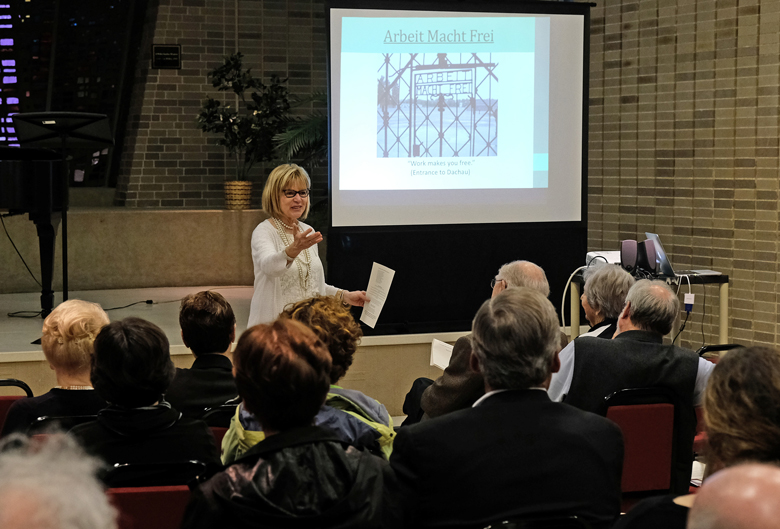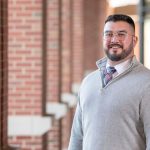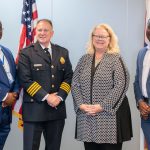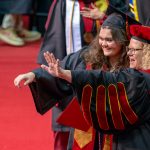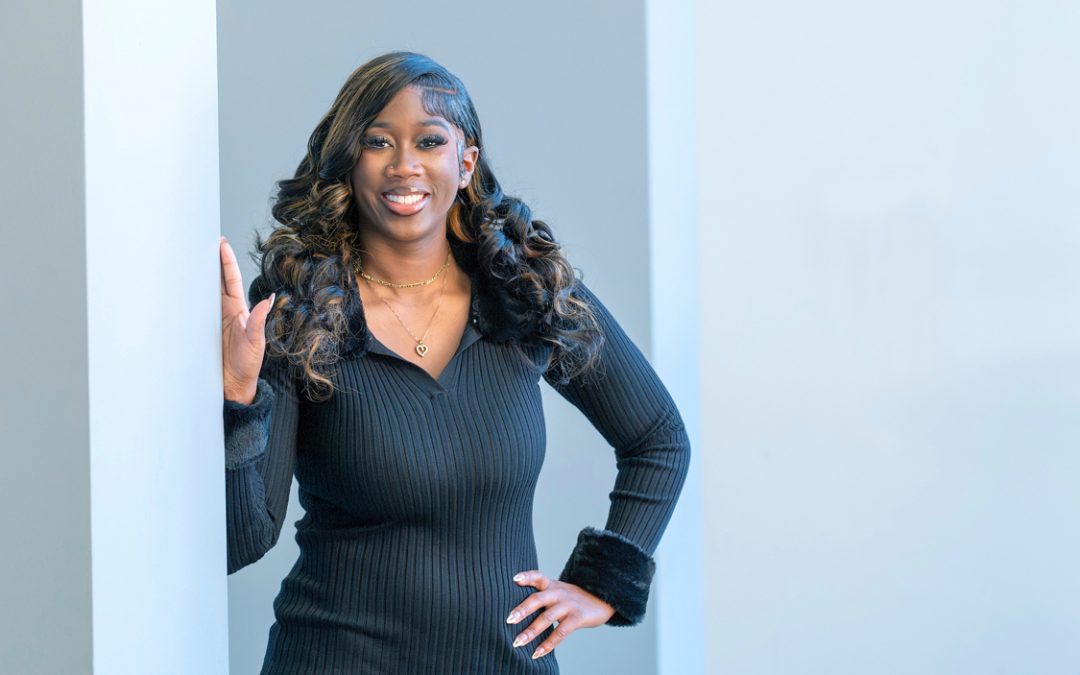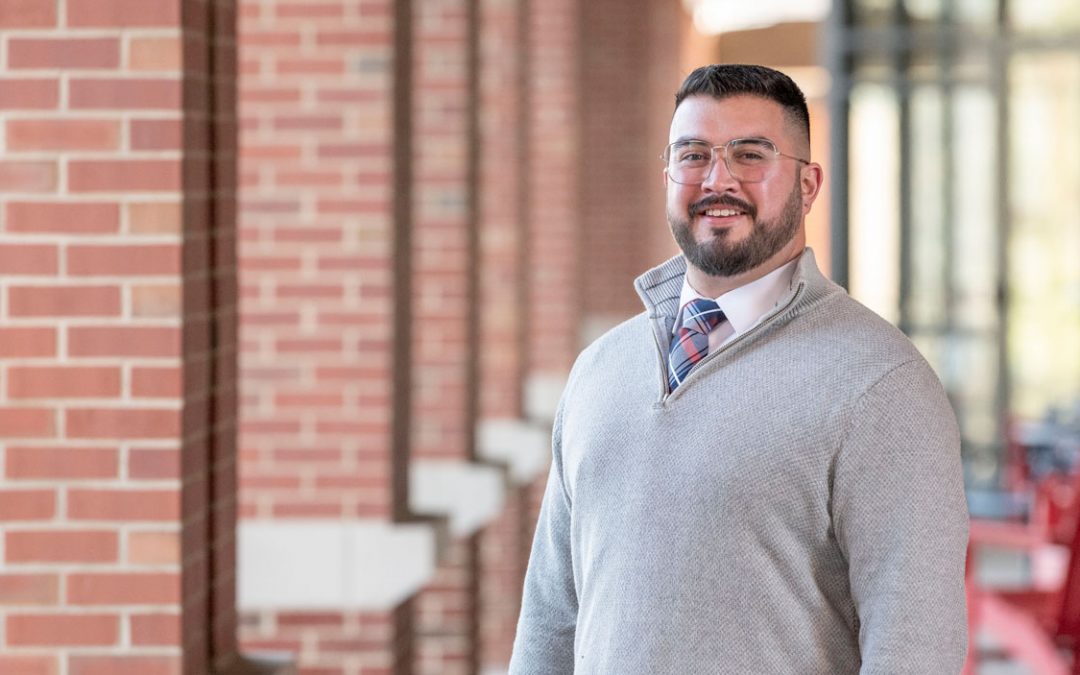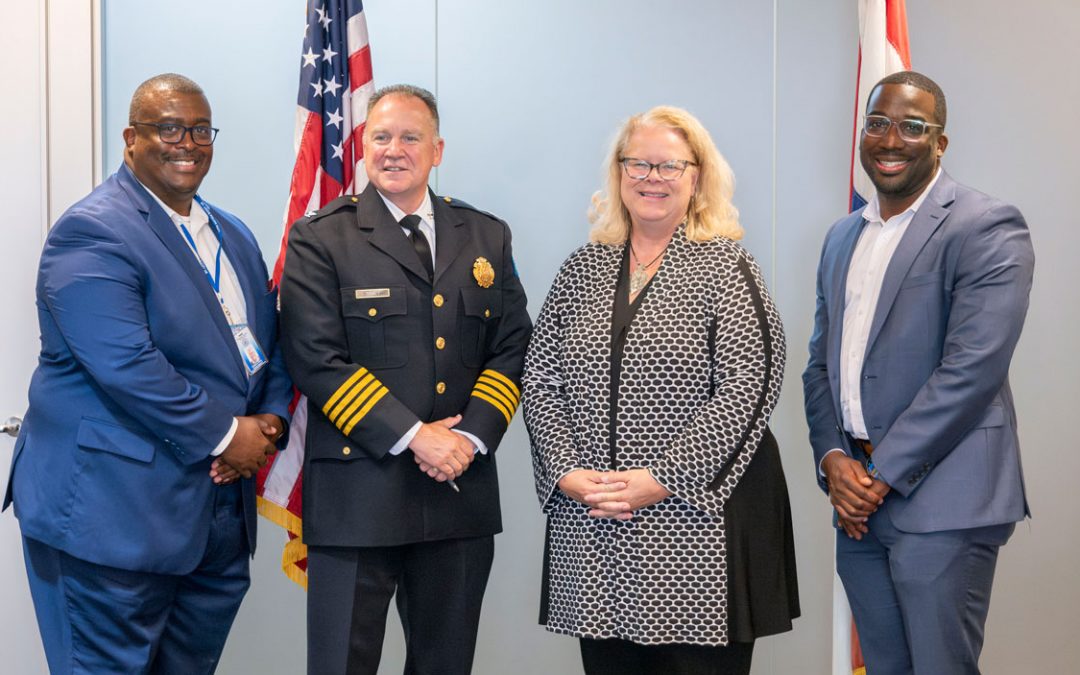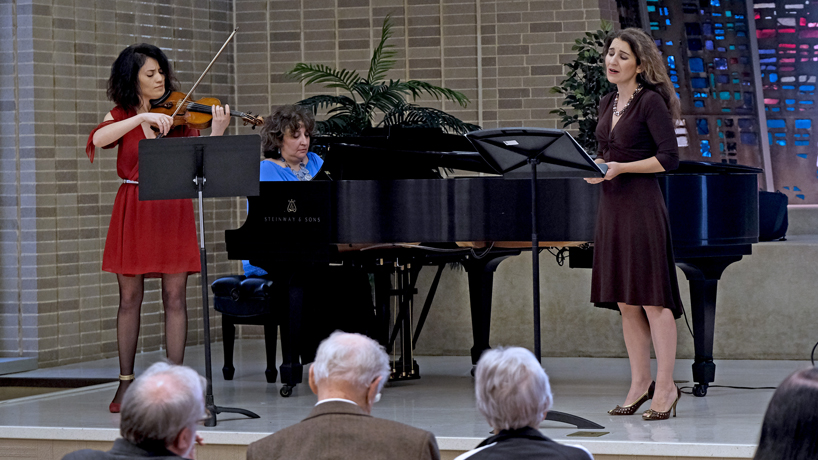
Department of Music faculty members Julia Sakharova (violin), Alla Voskoboynikova (piano) and Stella Markou (soprano) perform “Terezin Children’s Song Cycle,” a series composed by Barbara Harbach, director of the School of Fine and Performing Arts and Curators’ Distinguished Professor of Music. (Photos by August Jennewein)
Esty Munk was eager to approach University of Missouri–St. Louis faculty members Wednesday to show appreciation for the voice they provided her late grandfather, a survivor of Dachau concentration camp near Munich, Germany.
Following the “Voices from the Holocaust: Music Makes You Free” presentation, Munk, an adviser for the UMSL Jewish Student Association, connected with presenters on her family history. Their patriarch preferred not to speak of his imprisonment, but the music, art and poetry showcased during the program portrayed the memories he did discuss.
“Once I heard that it was the stories of the people of Dachau, I immediately related, being that my grandfather is a survivor of Dachau and his story was incredible,” Munk said. “Knowing that there was going to be someone else who even might have known him was worth coming out for.”
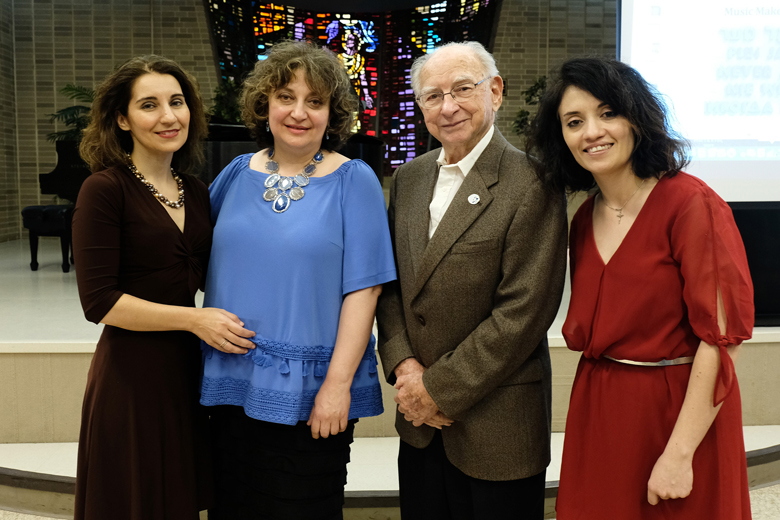
Mendel Rosenberg (center right), a survivor of Dachau concentration camp, gathers with UMSL music faculty members (from left) Stella Markou, Alla Voskoboynikova and Julia Sakharova after “Voices from the Holocaust: Music Makes You Free.”
That someone was Mendel Rosenberg, also a Dachau survivor and St. Louis resident, who attended the event in the Music Building. Gail Fleming, a lecturer for the Department of Music and Voices from the Holocaust presenter, met Rosenberg at the St. Louis Holocaust Museum and Learning Center and asked to share his story with the campus community.
A team of all female faculty members provided narratives of the people of Dachau and the children of Theresienstadt concentration camp in the Czech Republic. The program highlighted the art and poetry of victims and original arrangements from Department of Music faculty.
Throughout her presentation, Fleming played clips of a previous interview she had conducted with Rosenberg. He described a specific form of torture conducted at Dachau. The pair outlined stories of Nazis locking victims in a bright room echoing with music. The intention was to test how long people could survive without basic necessities.
“They were in there until they died because the Germans wanted to know how long it takes for people to die without food, without sleep, without water,” Rosenberg said during the video interview.
He did not recall a single person who survived this experience.
Despite the dark subject matter, Fleming hopes attendees remember the creative expressions of survivors. She arranged two of the showcased songs, which she wrote after an inspirational visit to Dachau in 2008. Her compositions were an original “Shalom for the Victims of Dachau” and “Dachaulied (Dachau Song),” which she arranged after discovering the unfinished song on a scrap of paper along a wall in one of the camp’s buildings.
“I felt like the song should be in some sort of form for people to preserve,” Fleming said. “I was so moved by my journey to Dachau in 2008, and last summer, I went again with a group of students traveling in a performance tour. That time, the students walked with me around the grounds, and I shared things with them that I knew, and they were very reverent and very respectful.”
Director of Gender Studies Kathleen Nigro also led a presentation on the art and poetry of Theresienstadt, also known as Terezin. A focal point of Nigro’s presentation was a musical collection composed by Barbara Harbach, director of the School of Fine and Performing Arts and Curators’ Distinguished Professor of Music. Harbach’s “Terezin Children’s Song Cycle” is a series adapted from the book “I Never Saw Another Butterfly,” which features poetry of Terezin children.
Department of Music faculty members Stella Markou (soprano), Julia Sakharova (violin) and Alla Voskoboynikova (piano) performed the cycle’s five songs. A standout among Harbach’s work was “The Butterfly,” which was written by Pavel Friedman in 1942. The line “Butterflies don’t live in here, in the ghetto” tied together many pieces of the presentation. However, Nigro warned in this instance, the butterfly is not the typical representation of hope.
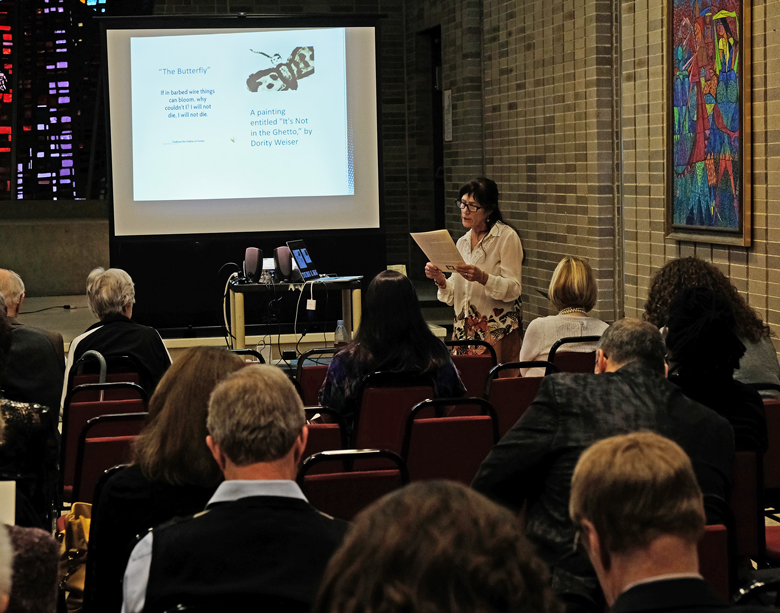
Director of Gender Studies Kathleen Nigro reads the lyrics of “The Butterfly,” written by Pavel Friedman and composed by Barbara Harbach, director of the School of Fine and Performing Arts and Curators’ Distinguished Professor of Music.
“I don’t think we should see it as a symbol of renewal or transformation,” Nigro said. “It was the beauty she would never see.”
Yvette Harris, a senior sociology major and one of Nigro’s students, also recognized the symbolism.
“The music was beautiful and it all combined,” Harris said. “My professor told me about the butterflies, and I will see butterflies in a different way than I saw them before.”
The event was hosted in commemoration of Yom HaShoah, a Holocaust memorial day, and highlighted a message that Fleming noted remains relevant.
“From the ashes, I think we try to show that the people were beautiful people,” Fleming said. “The children were beautiful children. I think we try to display that beauty and humanity of the people who were imprisoned.”
The Voices from the Holocaust team developed the program two years ago and has presented in a number of locations in the St. Louis area, including underserved communities. Nigro will continue her Holocaust education efforts this summer in a course focused on literature of the period.

